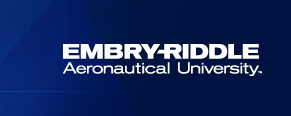Abstract
According to the Government Accountability Office (2018), collegiate aviation schools face two primary challenges: flight instructor retention and the high cost of pilot training. In a study of collegiate aviation programs, 16 of the 18 schools reported difficulty in recruiting and retaining certified flight instructors (CFI), leading to the inability to accept all students who applied to the programs. Furthermore, these programs attributed the high instructor turnover to the increased demand for commercial pilots at the airlines, a challenge that is not expected to decrease in the near future (Boeing, 2023). While the lack of flight instructor retention impacts flight training at all levels, one of the largest impacted areas appears to be in the area of initial flight instructor training. This study looked at two Midwestern collegiate flight programs to determine the current status of experience for active flight instructors, and to identify what incentives, if any exist to help keep the collegiate aviation pipeline supported. Results indicated that that despite size, both collegiate aviation programs currently struggle to maintain qualified flight instructors who meet the FAA requirements needed to train initial flight instructor candidates. Almost 61% indicated felt they had the skills to train CFI candidates but were not able to due to FAA regulations. Instructors currently do not want to be locked into a multi-year contract but would be willing to consider between six months to a year with increased incentives such as paid additional ratings, increased compensation, and airline pipeline programs.
Scholarly Commons Citation
Leonard, A.,
&
Christensen, C.
(2024).
Increasing Initial CFI Capacity Within Collegiate Flight Programs.
International Journal of Aviation, Aeronautics, and Aerospace,
11(4).
DOI: https://doi.org/10.58940/2374-6793.1939
Included in
Adult and Continuing Education Commons, Aviation Commons, Curriculum and Instruction Commons
